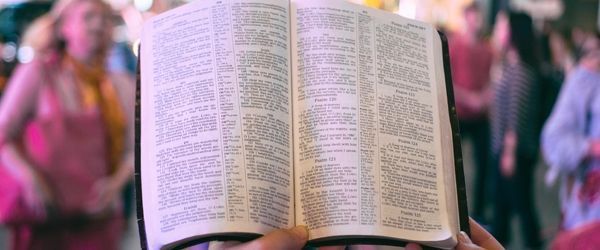
Doing versus being in the Christian life
Editor’s note: The worldwide response to COVID-19 meant that many people suddenly found themselves with completely different schedules—schedules that included a lot less face-to-face ministry and a lot more time at home.
Spiritual director Lynn Karidis wrote this article on “doing” versus “being” in the Christian life long before COVID-19 shook our world, but as countries open back up and we become more and more able to return to our former busy schedules, the topic seems particularly timely.
By Lynn Karidis —
Today I’ll address the question, "I keep hearing people talk about ‘doing' versus ‘being' in the Christian life. What do they mean?"
The Terms
The term “doing” in this context generally refers to the things we do for God—like teaching Sunday school, working in the church nursery, or volunteering at the local soup kitchen (this list is endless).
Whether one has chosen ministry as a vocation, or engages in ministry activities along with working in a secular profession, it’s often difficult to know how much ministry is enough. There is always work to do and too few to do it (Matt. 9:37). Conscientious believers can busy themselves into a state of exhaustion which then motivates others to encourage them to “be” instead of “do.”
“Being,” in this context, is a state rather than an activity. It emerges from an attitude of heart that values one’s connection with God along with a recognition of his presence.
Being with God can be as simple as acknowledging his presence while we go about our day, or as complex as setting aside time for a personal, silent retreat with God. In the context of “doing verses being,” the emphasis is often on the latter, implying an unnecessary conflict or competition between the two.
The Dilemma
Another place in Scripture where we find varying perspectives on the same subject is in chapters twelve and thirteen of 1 Corinthians. In 1 Corinthians 12, we learn we have been given spiritual gifts that enable us to do ministry for the good of the church. Then, in 1 Corinthians 13, we discover the importance of the attitude of our hearts as we exercise our gifts.
Then there are the seemingly competing emphases presented by Paul and James. In Romans 4, Paul emphasizes justification by faith, not by works. But James tells us that, “faith, by itself, if it is not accompanied by action, is dead….a person is justified by what he does and not by faith alone” (James 2:17, 24).
Properly taken together, these Scripture passages are not espousing competing truths, but instead are presenting harmonious truths: We are saved by grace alone through faith, but God also calls his children to engage in good works. We are given spiritual gifts which we actively use in ministry, but the attitude of our hearts as we minister is significant. We are justified by faith in Christ, but we engage in good works as an outgrowth of our new life in God.
How does a believer hold these truths in balance? In each of these issues, the solution is found in embracing a “both/and” rather than an “either/or” position. How can we apply this principle to the “doing versus being” question?
The Solution
- Don’t forget that God lives within us—and will never leave or forsake us—so we cannot not be with him (Matt. 28:20; Gal. 2:20; Col. 1:27; Heb. 13:5).
- Do take time throughout our day to acknowledge God’s presence.
- Don’t allow what we do with our body to separate our hearts from him. The truth about Martha in Luke 10:38-42 is that she could have been calmly chopping vegetables in the kitchen and listening to Jesus at the same time.
- Do keep our hearts and minds focused on God while doing ministry activities for him.
- Don’t allow our time to be so filled with activities for God that it squeezes out precious time spent with God in silence and solitude.
- Do use our calendars to schedule times alone with Jesus, and make it a priority to keep those appointments.
It is possible to set aside time to “be with God” and yet be so busy accomplishing various spiritual discipline tasks that we fail to actually connect with God on a heart level. The issue of exhaustion precipitated by the problem of busyness is not solved by embracing a false dichotomy between “doing” and “being,” but by engaging in the practice of rest. But that is a subject for another column.
In the meantime, do not stress about whether you are “doing” or “being.” By all means, do set aside time to be alone with God. But also do things for God while being conscious of his presence. Without him, all the work we do will amount to nothing (John 15:4-5).
Therefore go and make disciples of all nations, baptizing them in the name of the Father and of the Son and of the Holy Spirit, and teaching them to obey everything I have commanded you. And surely I am with you always, to the very end of the age.
Matthew 28:19-20
Additional Posts





